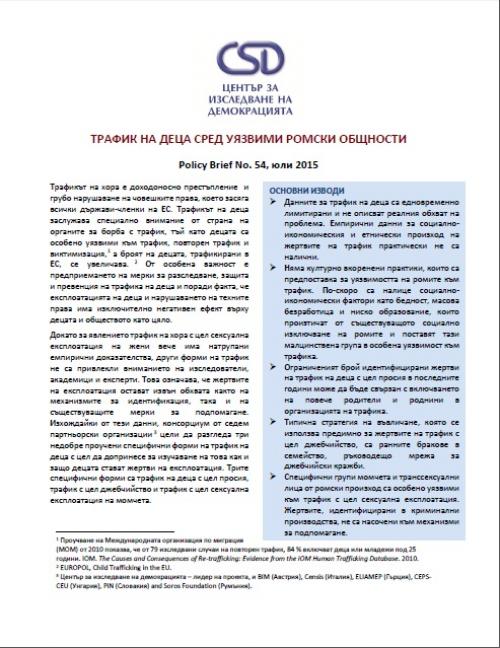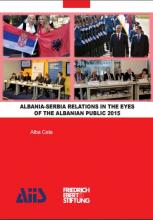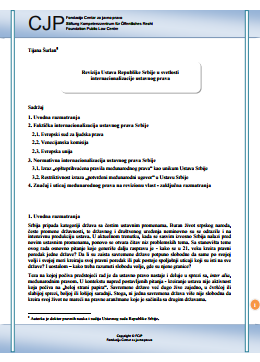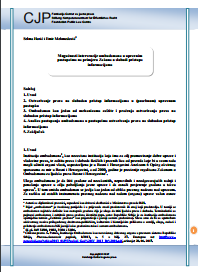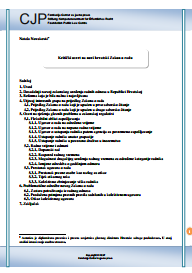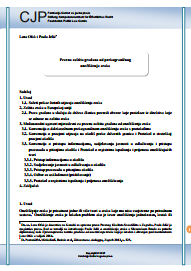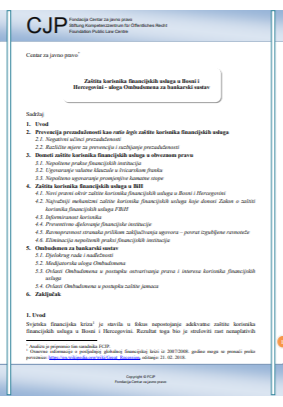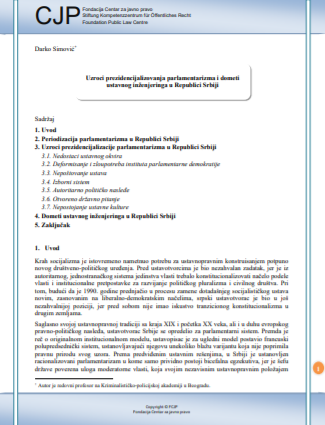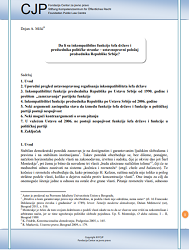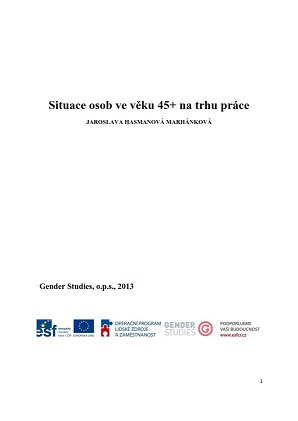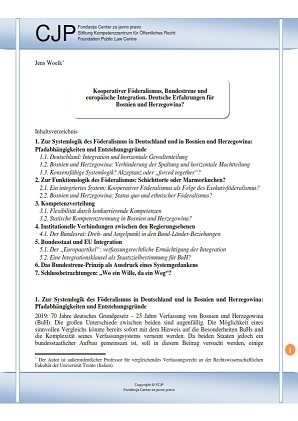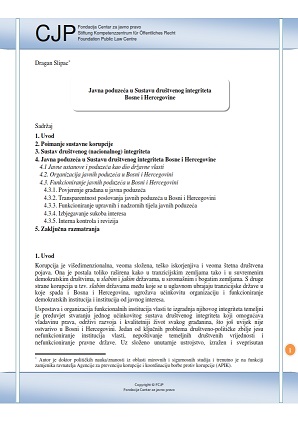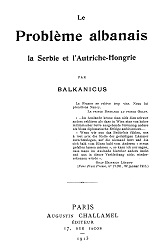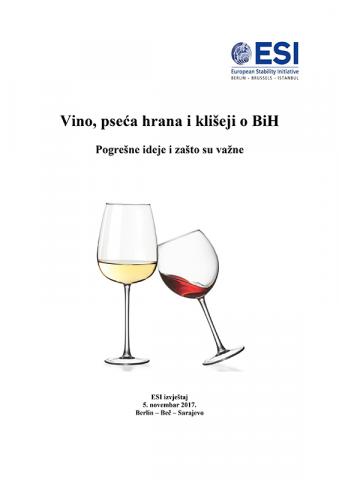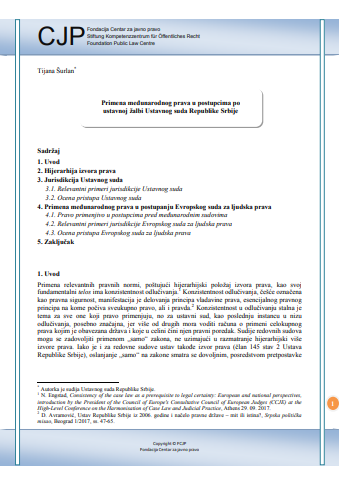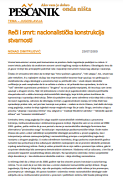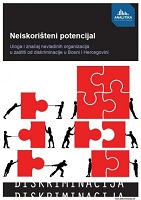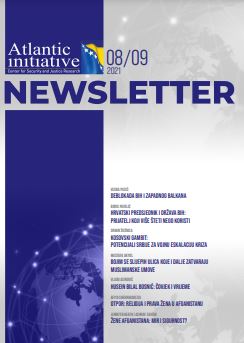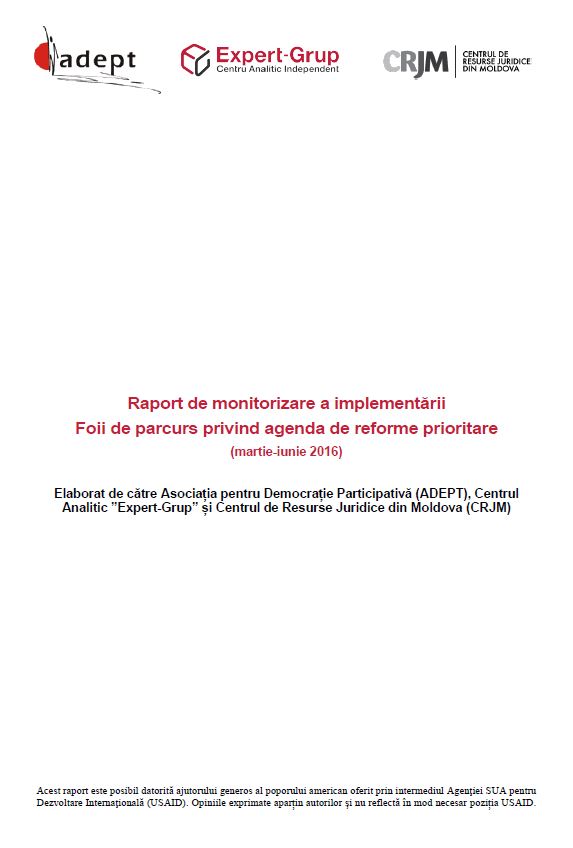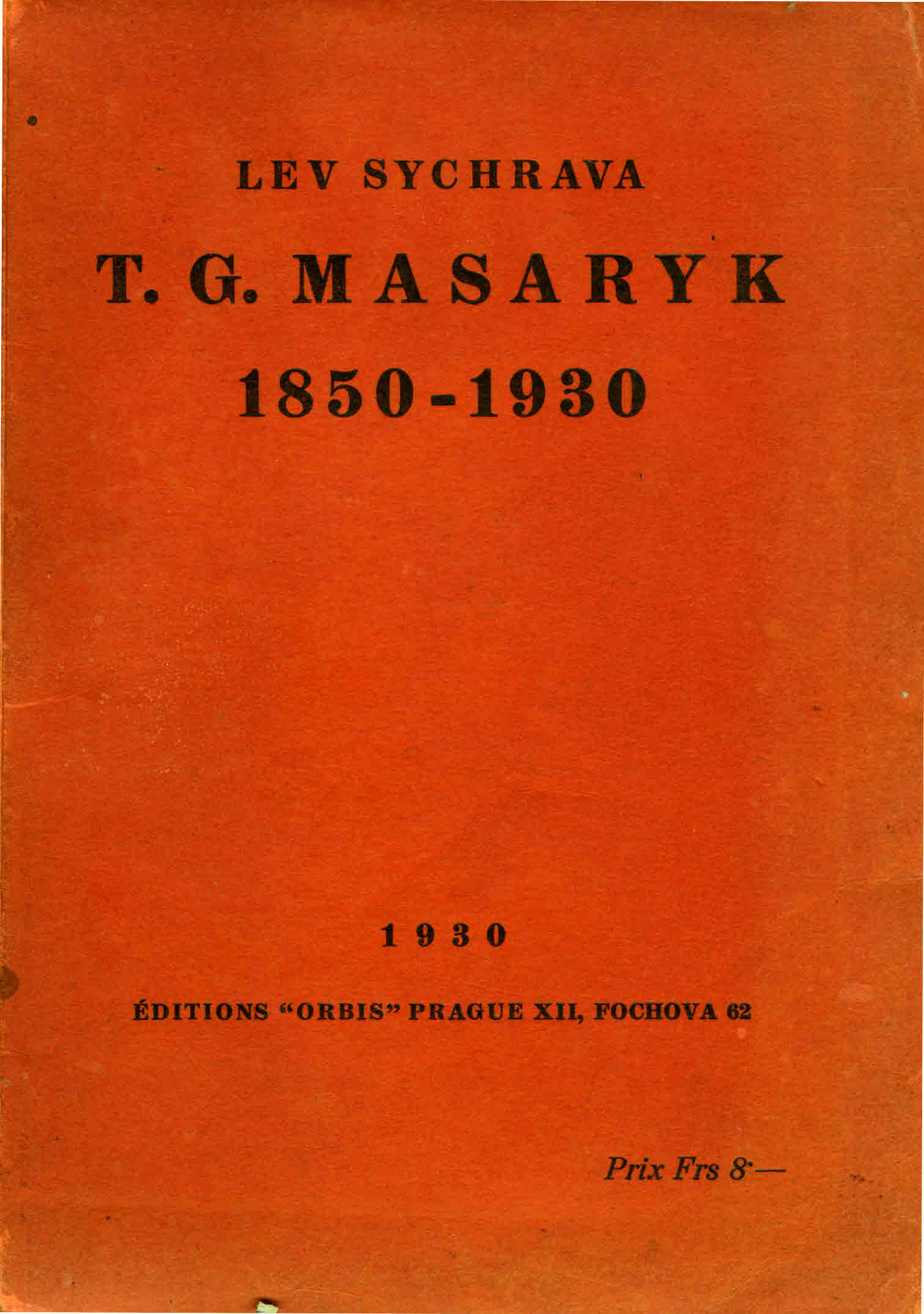Neiskorišteni potencijal: uloga i značaj nevladinih organizacija u zaštiti od diskriminacije u Bosni i Hercegovini
Author(s): Boris Topić / Language(s): Bosnian
Keywords: BiH; discrimination; protection; NGO; civil society; role; importance;
Usvajanjem Zakona o zabrani diskriminacije (u daljnjem tekstu: ZZD) u julu 2009. godine dopunjen je postojeći antidiskriminacioni okvir u Bosni i Herce govini. Time se i Bosna i Hercegovina priključila širokom krugu država koje eliminaciju diskriminacije nastoje da obezbijede kroz usvajanje sveobuhvatnog antidiskriminacionog zakonodavstva kojim se omogućava sudska zaštita od diskriminacije počinjene kako od države i njenih organa tako i od privatnih lica. Ovaj značajni zakon, pored ostalog, prepoznaje važnu ulogu koju nevladine organizacije mogu da odigraju na polju borbe protiv diskriminacije priznajući im, između ostalog, i određene procesne uloge u sudskom postupku za zaštitu od diskriminacije. Na međunarodnom i komparativnom planu, kao jedna od najznačajnijih aktivnosti nevladinih organizacija na polju borbe protiv diskriminacije ističe se njihova uloga u postupcima za zaštitu od diskriminacije. Razlog davanja mogućnosti organizacijama civilnog društva da učestvuju u postupcima za zaštitu od diskriminacije, u suštini, leži u činjenici da suzbijanje diskriminacije predstavlja djelatnost od javnog interesa, te da svaki dobro uređen sistem za zaštitu od diskriminacije treba da sadrži različite modalitete učešća nevladinih organizacija u postupcima za zaštitu od diskriminacije. Stoga djelovanje NVO-a u postupcima za zaštitu od diskriminacije možemo označiti kao specifičan vid parničenja u javnom interesu. Poseban značaj NVO-ima u ovom domenu, barem u zemljama Evropske unije, dale su direktive u oblasti diskriminacije, koje od država zahtijevaju da u svojim pravnim sistemima, u cilju obezbjeđivanja što efikasnije zaštite od diskriminacije, omoguće nevladinim organizacijama da djeluju u ime žrtava diskriminacije ili kao podrška ovim osobama u postupcima povodom zaštite od diskriminacije. Ove procesne uloge nevladinih organizacija su različito regulisane u različitim pravnim sistemima. Ipak, kao moguće oblike djelovanja nevladinih organizacija u ime žrtve generalno možemo da izdvojimo podnošenje tužbe u ime i za račun žrtve – dakle, pravno zastupanje, mogućnost pojavljivanja nevladine organizacije kao sutužioca uz žrtvu ili, pak, kao samostalnog nosioca tužbe uz pristanak žrtve. Pored navedenog, kao specifičan način djelovanja za račun žrtava diskriminacije izdvajaju se aktivnosti nevladinih organizacija u pravcu podnošenja kolektivne ili grupne tužbe. Veoma važan oblik podrške žrtvama diskriminacije u postupcima povodom diskriminacije svakako je i učešće organizacija civilnog društva kao umješača u postupku na strani žrtve ili, pak, kao prijatelja suda (amici curiae). Na kraju, jedan od ključnih doprinosa nevladinih organizacija u oblasti borbe protiv diskriminacije nesumnjivo je i njihova uloga u takozvanim strateškim parnicama pokrenutim radi obezbjeđenja podrške implementaciji antidiskriminacionih zakona ili rasvjetljavanju različitih koncepata sadržanih u antidiskriminacionom pravu. Imajući u vidu navedeno, ovaj izvještaj nastoji da analizira postojeća zakonska rješenja u svjetlu komparativnih iskustava te da ukaže na prepreke koje stoje na putu aktivnijem angažmanu nevladinih organizacija u sudskim postupcima za zaštitu od diskriminacije. Pored toga, izvještaj nastoji da ponudi određena rješenja koja bi dodatno motivisala nevladine organizacije da aktivno koriste procesne uloge koje su im dodijeljene ZZD-om, a u najboljem interesu žrtava diskriminacije. Izvještaj je prevashodno zasnovan na sekundarnom, komparativnom istraživanju fokusiranom na ulogu, aktivnosti i najbolju praksu organizacija civilnog društva u sudskom postupku zaštite od diskriminacije. Pored toga, analizirana su relevantna zakonska rješenja koja se tiču procesne uloge nevladinih organizacija u sudskom postupku zaštite od diskriminacije, kao i prve presude u predmetima diskriminacije u Bosni i Hercegovini. Analiza usvojenih zakonskih rješenja u Bosni i Hercegovini je izvršena u svjetlu komparativnih iskustava, prije svega iskustava zemalja u okruženju, s obzirom na to da upravo one sa Bosnom i Hercegovinom dijele sličnu pravnu tradiciju i slične probleme, ali i zemalja Evropske unije kojima se Bosna i Hercegovina nastoji pridružiti. Analiza je obuhvatila i druge slučajeve kada je to bilo potrebno radi odgovora na konkretna pitanja. Na kraju, konsultovani su i dostupni izvori o aktuelnom stanju u nevladinom sektoru u Bosni i Hercegovini, sa posebnim fokusom na organizacije koje se bave zaštitom ljudskih prava. U svom prvom dijelu, ovaj izvještaj analizira rješenja predviđena Zakonom o zabrani diskriminacije Bosne i Hercegovine u pogledu procesne uloge nevladinih organizacija u postupku antidiskriminacione zaštite. Drugi dio se fokusira na prepreke koje organizacijama civilnog društva onemogućavaju da se aktivnije uključe u sudske postupke za zaštitu od diskriminacije. Kroz pregled komparativnih iskustava, nastoji se ukazati na najvažnije uslove i kriterije za efikasno korišćenje opcije učešća nevladinih organizacija u postupku antidiskriminacione zaštite u Bosni i Hercegovini. Konačno, u zaključnim razmatranjima sumiraju se zapažanja ove analize te formulišu određene preporuke u pogledu zakonodavnih i praktičnih rješenja u ovoj oblasti u Bosni i Hercegovini.
More...
